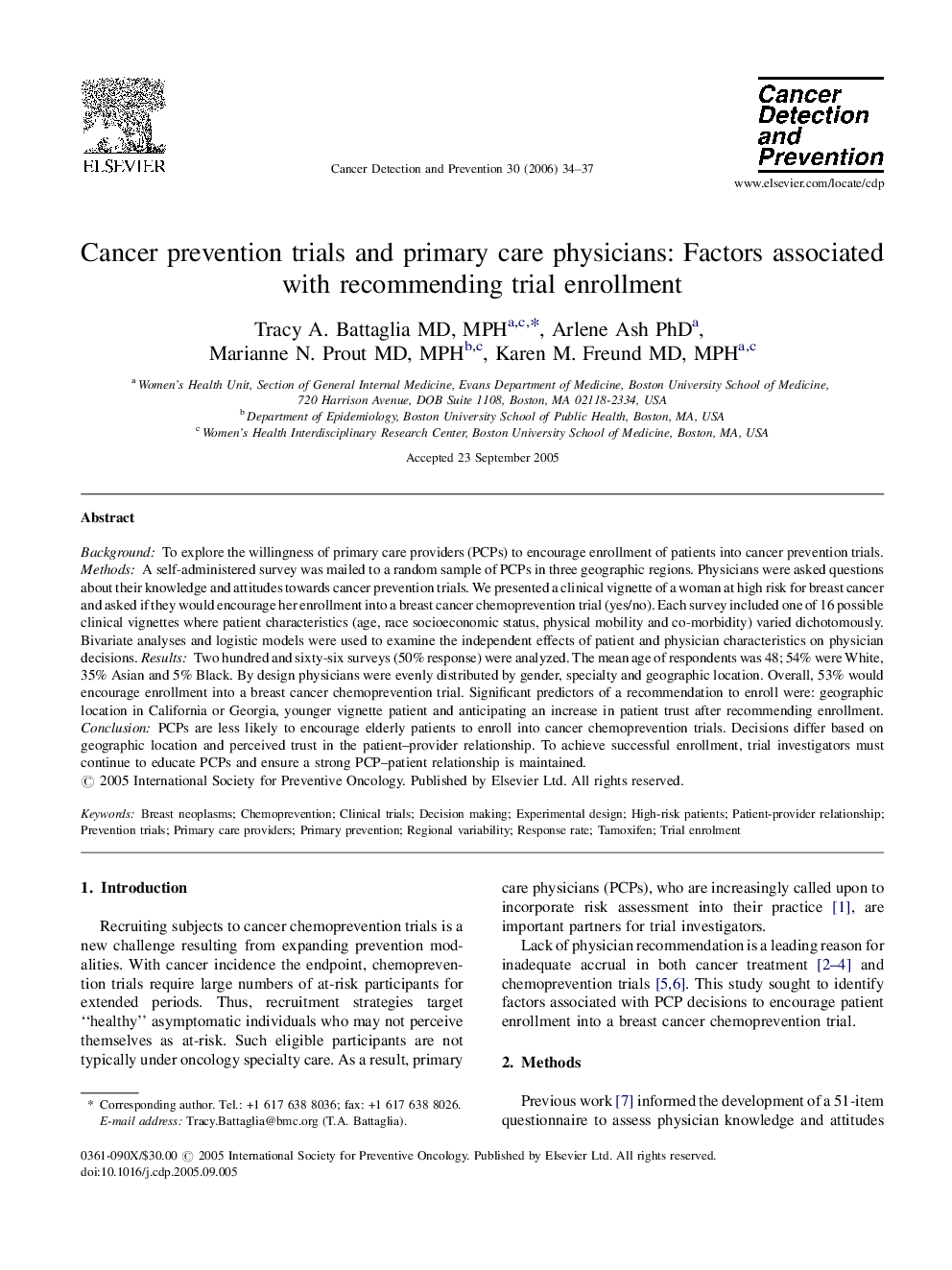| Article ID | Journal | Published Year | Pages | File Type |
|---|---|---|---|---|
| 2108771 | Cancer Detection and Prevention | 2006 | 4 Pages |
Background: To explore the willingness of primary care providers (PCPs) to encourage enrollment of patients into cancer prevention trials. Methods: A self-administered survey was mailed to a random sample of PCPs in three geographic regions. Physicians were asked questions about their knowledge and attitudes towards cancer prevention trials. We presented a clinical vignette of a woman at high risk for breast cancer and asked if they would encourage her enrollment into a breast cancer chemoprevention trial (yes/no). Each survey included one of 16 possible clinical vignettes where patient characteristics (age, race socioeconomic status, physical mobility and co-morbidity) varied dichotomously. Bivariate analyses and logistic models were used to examine the independent effects of patient and physician characteristics on physician decisions. Results: Two hundred and sixty-six surveys (50% response) were analyzed. The mean age of respondents was 48; 54% were White, 35% Asian and 5% Black. By design physicians were evenly distributed by gender, specialty and geographic location. Overall, 53% would encourage enrollment into a breast cancer chemoprevention trial. Significant predictors of a recommendation to enroll were: geographic location in California or Georgia, younger vignette patient and anticipating an increase in patient trust after recommending enrollment. Conclusion: PCPs are less likely to encourage elderly patients to enroll into cancer chemoprevention trials. Decisions differ based on geographic location and perceived trust in the patient–provider relationship. To achieve successful enrollment, trial investigators must continue to educate PCPs and ensure a strong PCP–patient relationship is maintained.
